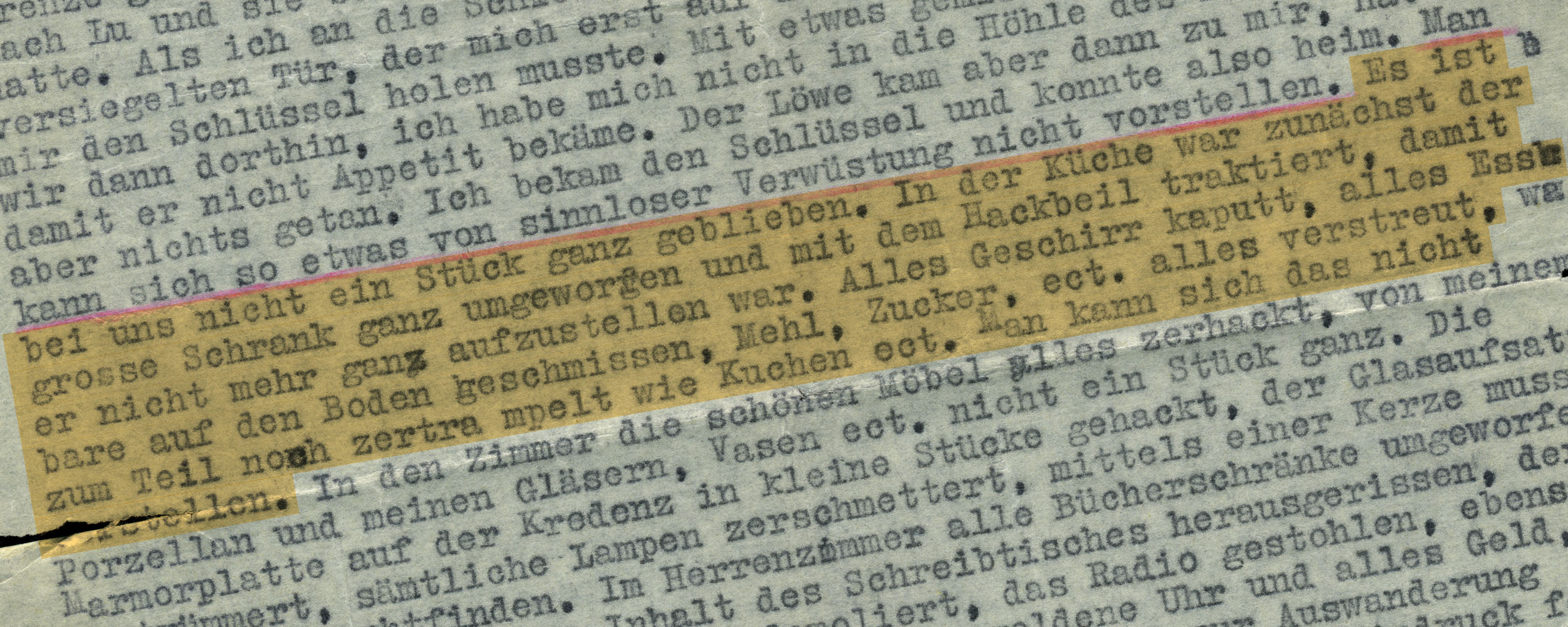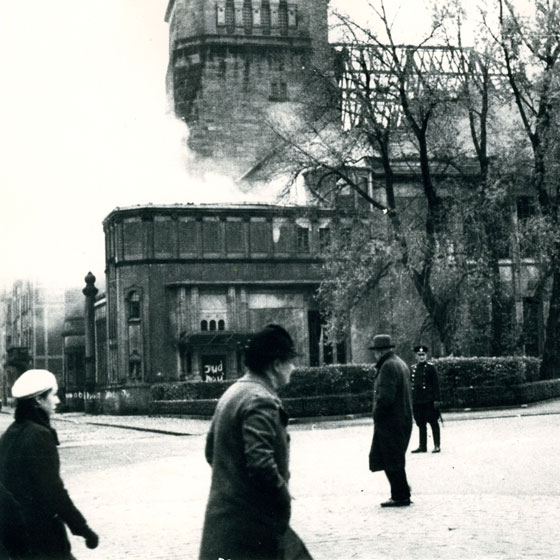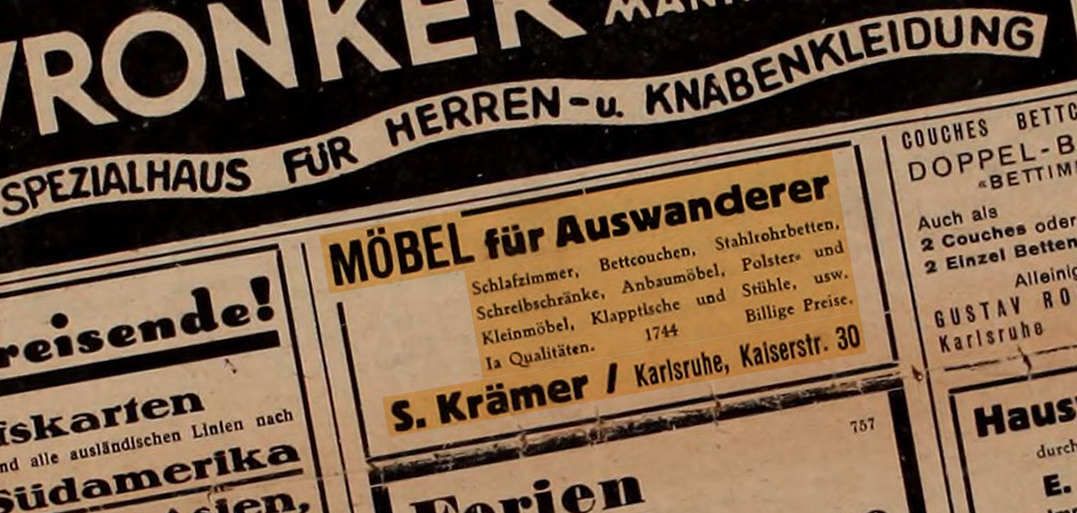Relative luck
Total destruction and a little bit of luck

“Not one piece remained intact in our home. All the dishes broken, edibles flung onto the floor, flour, sugar etc., all scattered, part of it trampled on, like cake etc., you can't imagine.”
Ludwigshafen/New York
Richard Neubauer was lucky. When, during the November pogroms, throughout the night from the 9th to the 10th (later known as “Kristallnacht” or “Night of Broken Glass”), Nazi thugs destroyed the property of his relatives in Germany, he was already in safety in New York. In this letter, his brother Fritz describes to him in vivid detail the horrific destruction wrought upon Jews and their belongings and the terror caused by the brutality. The Neubauer brothers had inherited the Neubauer Print Shop in Ludwigshafen. Due to the destruction of the free press through its forced conformity under the Nazis, the print shop had lost all its business. Thanks to some lucky coincidences, Fritz, his wife Ruth, and their two children were in possession of train tickets making it possible to legally cross the border into Switzerland. Ruth had managed to salvage them from the wreckage of their furniture.
SOURCE
Institution:
Leo Baeck Institute – New York | Berlin 
Collection:
Otto Neubauer Collection, AR 25339 
Original:
Chronology of major events in 1938
The Night of Broken Glass

The smoldering synagogue following the night of November 9 in Bamberg.
The night of November 9 is marked by violent assaults against Jews living in Germany, Austria, and the Sudetenland. The pogroms are sanctioned by the government. More than 90 Jews are killed, and 267 synagogues are burned or otherwise destroyed. The windows of Jewish-owned businesses are smashed, and Jewish community centers and homes are looted and vandalized. National Socialist rioters defile Jewish cemeteries, hospitals, and schools while police and firefighters stand idly by. The attacks are a turning point in two senses: First, they represent the moment in which mounting legal discrimination against Jews gives way to organized, state-sponsored mass violence. Second, for Jews in the German Reich, they are the decisive sign that emigration is the only hope of survival.
View chronology of major events in 1938








































